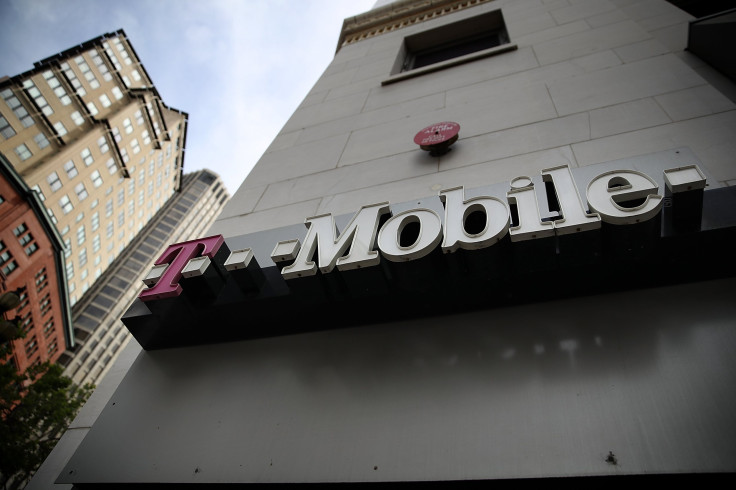T-Mobile And Sprint Just Told The FCC They Can't Keep Competing Separately

T-Mobile (NASDAQ:TMUS) and Sprint (NYSE:S) recently submitted their public interest statement to the FCC about their proposed merger. In the document, the two companies present how their merger will benefit consumers. But further down, about 100 pages in, they explain that neither company can continue down the path they've been on, aggressively pursuing market share from AT&T (NYSE:T) and Verizon (NYSE:VZ).
Both T-Mobile and Sprint lack sufficient scale and spectrum assets to effectively compete with Verizon and AT&T long term, the companies said. Additionally, Sprint stands on poor financial footing and suffers from poor consumer perception and satisfaction.
This article originally appeared in The Motley Fool.
Here are more details about T-Mobile and Sprint's arguments, and how a combined "New T-Mobile" would solve their issues.
"Sprint Faces Serious Challenges For The Future"
Sprint has four major weaknesses preventing it from effectively competing with Verizon and AT&T: lack of scale, insufficient spectrum and network assets to keep up with the competition, poor perception and customer satisfaction, and poor finances.
Scale is the biggest reason Sprint and T-Mobile are looking to merge. The wireless networks require massive fixed costs, and those costs are much more efficient with lots of customers. AT&T and Verizon benefit from having about twice as many wireless customers as T-Mobile and Sprint, which are a distant third and fourth place in the industry.
What's more, Sprint's position is getting worse. It's gone from a 15.5% share of the wireless industry in 2013 to a 13.4% share in 2016, according to the company's public interest statement.
Sprint also isn't in a great position with its spectrum holding. Sprint holds a bunch of 2.5 GHz spectrum, which is great for delivering fast internet speeds. The problem is it requires cell sites very close together in order to provide consistent coverage. Sprint still hasn't been able to put up those 2.5 GHz radios fast enough, and it's fallen well behind the competition.
Due to the nature of its spectrum holdings and its poor market penetration, it wouldn't be economical for Sprint to offer its 5G network outside of densely populated urban areas. In a few years, Sprint's service offering would only be competitive in a few markets.
Sprint also has a poor perception among consumers. That's evidenced by the fact that the company has seen only modest postpaid phone subscriber growth despite extremely aggressive pricing. Since the second quarter of 2016, Sprint added about 1.5 million postpaid phone subscribers, but the average revenue per user fell from $59.20 to $50.44. It's worth noting that Sprint lost about 1.6 million prepaid customers during the same period.
Finally, Sprint stands on poor financial footing. It faces a terrible Catch-22 wherein it needs to improve its network to attract customers, but it needs to raise prices on current customers to have the cash to improve its network. It's already the most highly leveraged company in the S&P 500, and it's already made massive cuts to its overhead in order to produce positive cash flow. In a capital intensive business like wireless phone service, Sprint is barely able to keep up.
T-Mobile Is Doing Only Slightly Better
T-Mobile has managed to add millions of new subscribers over the last five years through its aggressive promotions. Still, it too lacks scale compared to AT&T and Verizon. T-Mobile is only growing because it's been able to sacrifice any margin improvement and invest in customer-friendly initiatives. The moves ultimately destroy profits across the industry, and it's an unsustainable path.
Like Sprint, T-Mobile's spectrum holdings aren't quite sufficient for 5G networks. It holds a good amount of low-band and mid-band spectrum, which are great for carrying signals long distances and producing relatively fast speeds, but they won't provide the low-latency expected of 5G networks.
Additionally, with the need to continue investing in customer-friendly initiatives in order to scale its customer base, T-Mobile won't be able to compete with AT&T, Verizon, and other competitors for millimeter wave spectrum in highly desired geographies. That will only enable AT&T and Verizon to move further ahead of T-Mobile long term.
The Two Companies Are Complements
T-Mobile and Sprint would provide instant scale, enabling the two to eventually take advantage of their combined networks after reducing redundant expenses. That would free up significant cash flow for investing in the network and deploying their combined spectrum holdings efficiently. Sprint's spectrum provides high-speed, low-latency connections and T-Mobile's spectrum allows the network to reach more people.
The company purposely chose to stick with the T-Mobile brand name, as the company has built a strong brand perception thanks to its customer-friendly moves in recent years. That ought to help improve Sprint's image problem, and, combined with the better service from T-Mobile, it should attract more customers to the brand overall.
AT&T and Verizon will have a strong competitor on their hands if T-Mobile and Sprint succeed in their merger. That said, they'll also have one less competitor, and one that's less aggressive in its efforts to scale its customer base, so that could still be a benefit for the two larger competitors.
Adam Levy has no position in any of the stocks mentioned. The Motley Fool owns shares of Verizon Communications. The Motley Fool recommends T-Mobile US. The Motley Fool has a disclosure policy.





















